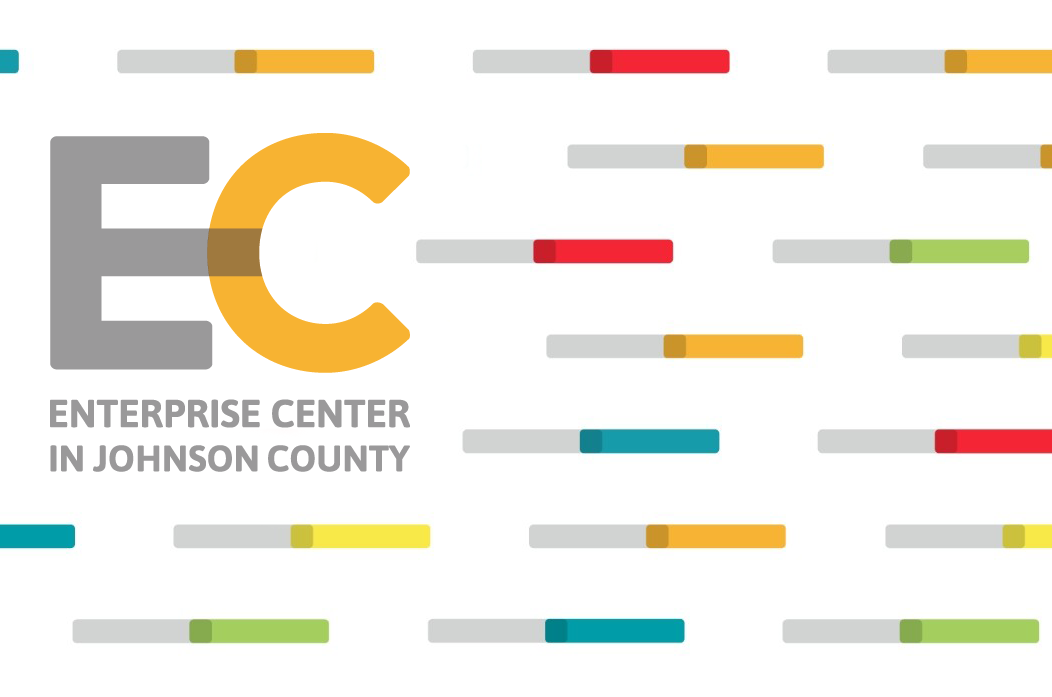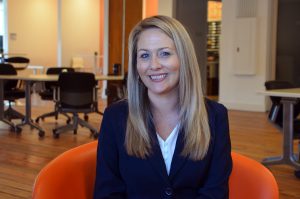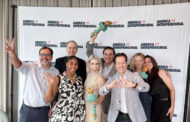Hungry entrepreneurs could be the leading reason behind the return of Pitch Perfect bootcamp at the Enterprise Center in Johnson County.
“[We heard from the community that] it was one of the best programs in the city for [early-stage founders],” Kathryn Golden, ECJC programs manager, said of a growing appetite for resources provided by the program — set to return to the metro Oct. 23.
Is Pitch Perfect right for me? Pitch Perfect is an 11-week, investor-led bootcamp for entrepreneurs who are currently, or will in the next 6 months, be seeking an equity investment of at least $250k (a seed round) of investment.
Funding for initial program cohorts — which helped guide such wide-ranging companies as VR-therapy startup StoryUP Studios, real estate tech firm realquantum and primary care platform ModRN Health — ran out in 2018, forcing ECJC to pump the breaks on Pitch Perfect.
Widespread community response to the halt caught the attention of the Ewing Marion Kauffman Foundation — the original backer of the program and returning supporter, Golden added.
“I very much appreciate the rally cry from the entrepreneur community. It’s really played a part in Kauffman agreeing to support this program again,” she explained. “We’re going to be starting a cohort this year which will wrap-up in January and then we’ll be doing two additional cohorts in 2020 and 2021.”
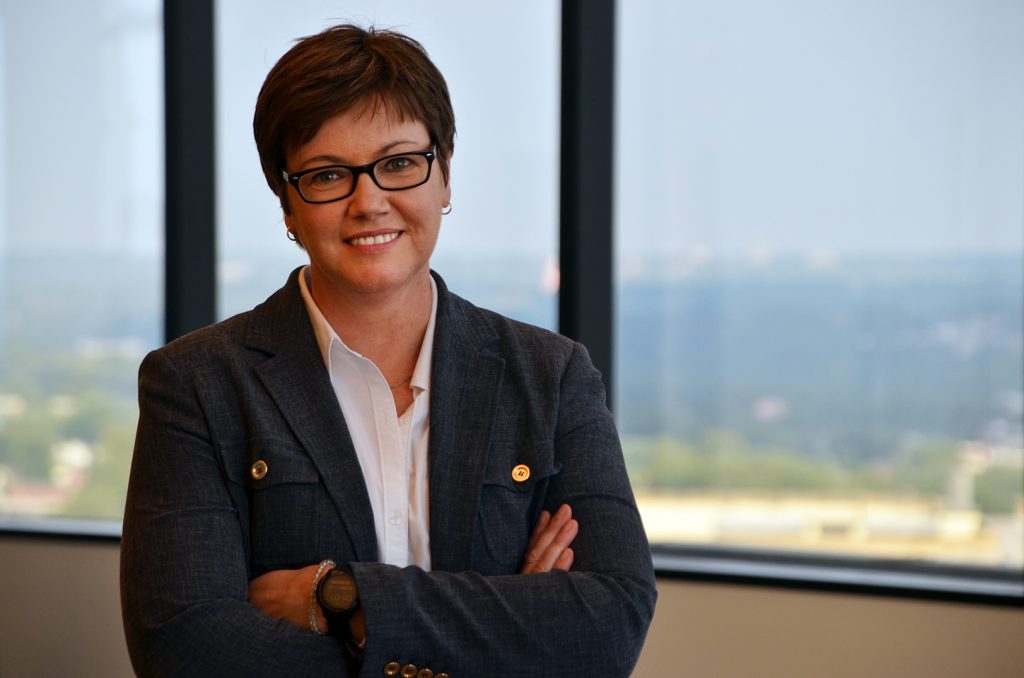
Kathryn Golden, Enterprise Center in Johnson County
A safe space … with an honest look in the mirror
A skills-development program that enables growth for early-stage startups, Pitch Perfect teaches such skills as calculating valuation, understanding financial terms, presenting well during the due diligence process, and portraying confidence during an angel pitch.
“From the first day, I realized I didn’t know half as much as I thought. Books, podcasts, and meetups are great, but they lack the intensity and energy of face-to-face sessions with people who know the ropes,” Mark Davis, co-founder and CEO of realquantum, said of the program’s impact on his company.
“[Pitch Perfect] was exactly the ‘safe space’ we needed to work through and improve our investor pitch,” added CaRessa Hutchison, CEO of ModRN Health
Such experiences could prove the program’s approach to growth is better than blind funding, explained Keith Harrington, managing director at Novel Growth Partners and an early champion of the Pitch Perfect program.
“Many people think that raising money is the outcome that should be celebrated, but that’s not necessarily the most important metric,” Harrington said. “Sure, raising money is sometimes necessary in order to fund early stage business growth, but growth is the outcome that we should celebrate.”
Featuring curriculum co-developed by Harrington and Melissa Roberts Chapman, click here to read about the program’s fall 2017 launch at ECJC.
A valued asset of the program: ditching one-size-fits-all models and developing growth strategies tailor-made for each company, Harrington added.
“We help level the playing field for founders by helping them understand the language, the options, and the ins and outs of raising capital. This means digging into the complexities and trade-offs associated with taking investors’ money, and understanding how investors think about opportunities. It also means really working to understand how much money a business needs to grow,” he said.
The program also teaches companies not every startup needs to seek venture capital funding, Harrington noted.
“We’ve actually guided founders toward different funding options in order to help maximize their opportunity for success,” he said. “We also tell founders they should not raise money when we see that they shouldn’t and that — that honesty — is why I think this class is worthwhile.”
Click here to apply for the 2019 Pitch Perfect cohort.
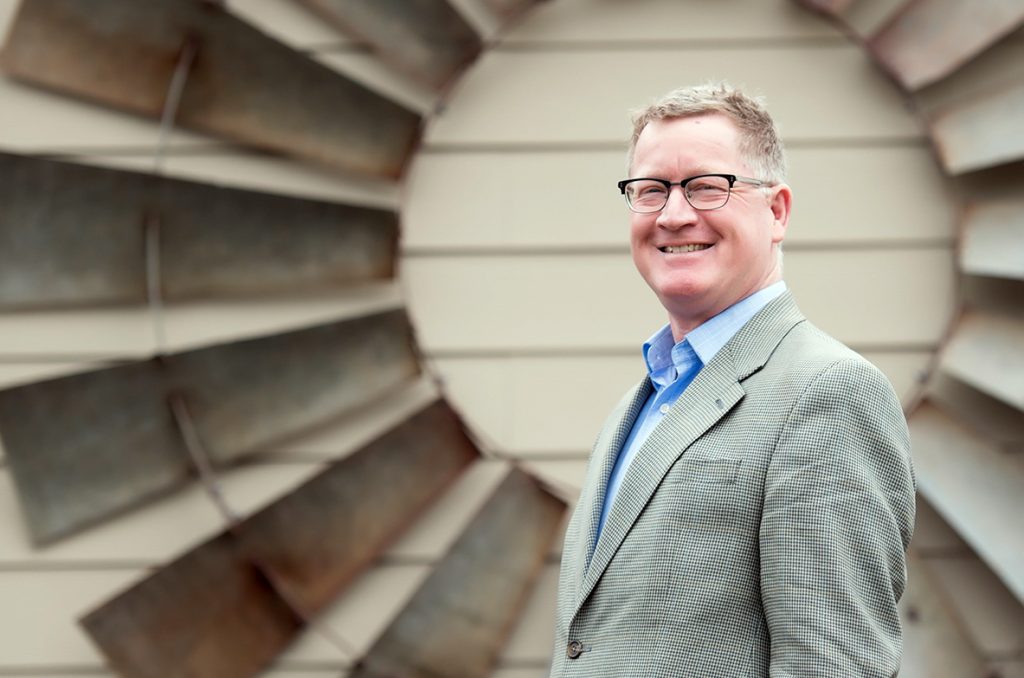
Frank Keck, CoreBuild
A closer look at company culture
Maintaining such raw truth-telling, the development of the program’s latest incarnation meant admitting Pitch Perfect lacked in certain areas, Golden added.
As a result, Pitch Perfect will partner with CoreBuild Solutions and its CEO, Frank Keck, to provide its crop of startups with tools that help develop company culture and find value in storytelling.
“It goes way beyond just, ‘Hey, I’m starting a business. Investors want to know, ‘Can we make money?’ … but they also want to know [if the founder is the right person for the job],” Keck said of his work, which will examine the authenticity of a founder’s pitch and help them find ways to effectively communicate with investors as storytellers.
“You don’t have to be a professional speaker,” he said in reference to elements of a winning pitch. “It’s really just coming across with that conviction and then get them to actually be excited about it as opposed to being nervous about it.”



